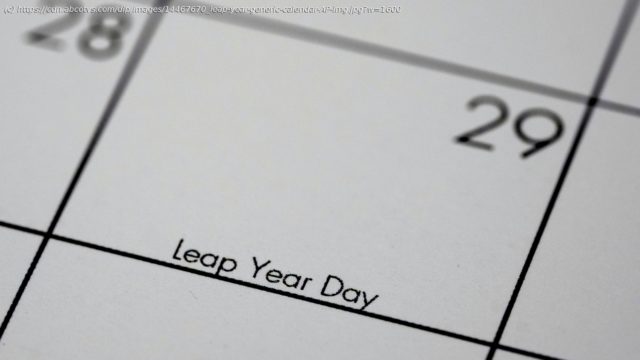Leap year. It’s a delight for the calendar and math nerds among us. So how did it all begin and why?
The thing to know is that leap year exists, in large part, to keep the months in sync with annual events.
What would happen without a Leap Day? More than you might think
Leap year. It’s a delight for the calendar and math nerds among us. So how did it all begin and why?
Have a look at some of the numbers, history and lore behind the (not quite) every four year phenom that adds a 29th day to February.
The math is mind-boggling in a layperson sort of way and down to fractions of days and minutes. There’s even a leap second occasionally, but there’s no hullabaloo when that happens.
The thing to know is that leap year exists, in large part, to keep the months in sync with annual events, including equinoxes and solstices, according to the Jet Propulsion Laboratory at the California Institute of Technology.
It’s a correction to counter the fact that Earth’s orbit isn’t precisely 365 days a year. The trip takes about six hours longer than that, NASA says.
Contrary to what some might believe, however, not every four years is a leaper. Adding a leap day every four years would make the calendar longer by more than 44 minutes, according to the National Air & Space Museum.
Later, on a calendar yet to come (we’ll get to it), it was decreed that years divisible by 100 not follow the four-year leap day rule unless they are also divisible by 400, the JPL notes. In the past 500 years, there was no leap day in 1700, 1800 and 1900, but 2000 had one. In the next 500 years, if the practice is followed, there will be no leap day in 2100, 2200, 2300 and 2500.
Still with us?
The next leap years are 2028, 2032 and 2036.
WHAT WOULD HAPPEN WITHOUT A LEAP DAY?
Eventually, nothing good in terms of when major events fall, when farmers plant and how seasons align with the sun and the moon.
„Without the leap years, after a few hundred years we will have summer in November,“ said Younas Khan, a physics instructor at the University of Alabama at Birmingham. „Christmas will be in summer. There will be no snow. There will be no feeling of Christmas.“
WHO CAME UP WITH LEAP YEAR?
Ancient civilizations used the cosmos to plan their lives, and there are calendars dating back to the Bronze Age. They were based on either the phases of the moon or the sun, as various calendars are today. Usually they were „lunisolar,“ using both.
Now hop on over to the Roman Empire and Julius Caesar.






